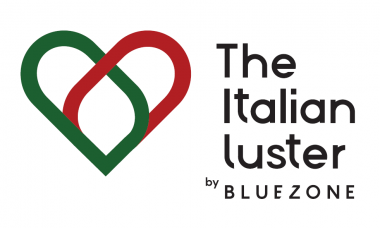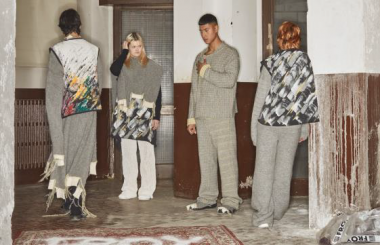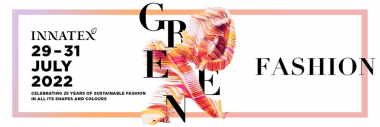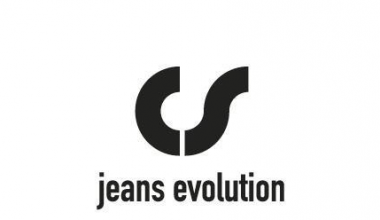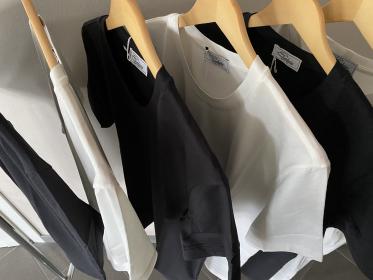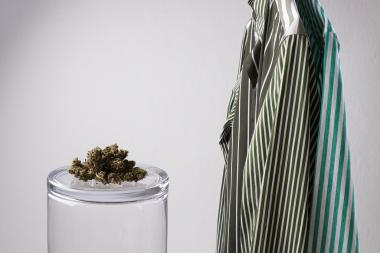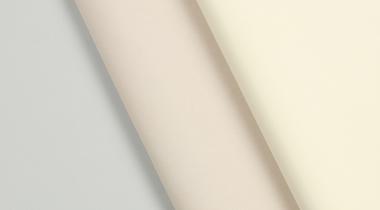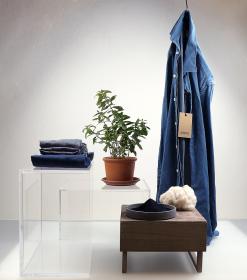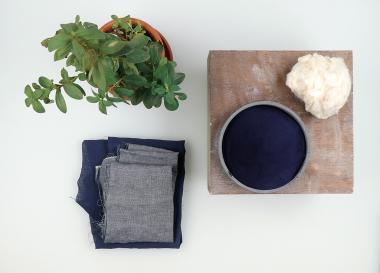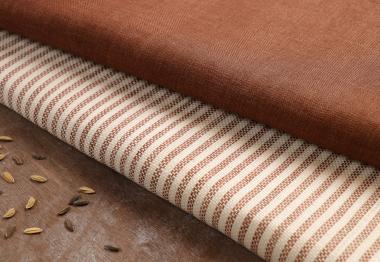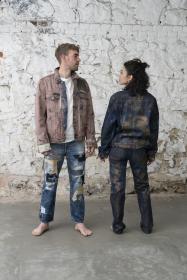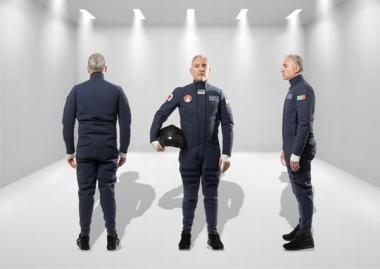Ionofibres a new track for smart and functional textiles
Electronically conductive fibres are already in use in smart textiles, but in a recently published research article, ionically conductive fibres have proven to be of increasing interest. The so-called ionofibres achieve higher flexibility and durability and match the type of conduction our body uses. In the future, they may be used for such items as textile batteries, textile displays, and textile muscles.
The research project is being carried out by doctoral student Claude Huniade at the University of Borås and is a track within a larger project, Weafing, the goal of which is to develop novel, unprecedented garments for haptic stimulation comprising flexible and wearable textile actuators and sensors.
In Claude Huniade’s project, the goal is to produce conductive yarns without conductive metals.
"My research is about producing electrically conductive textile fibres, and ultimately yarns, by coating non-metals sustainably on commercial yarns. The biggest challenge is in the balance between keeping the textile properties and adding the conductive feature," said Claude Huniade.
Currenty, the uniqueness of his research leans towards the strategies employed when coating. These strategies expand to the processes and the materials used.
Uses ionic liquid
One of the tracks he investigates is about a new kind of material as textile coating, ionic liquids in combination with commercial textile fibres. Just like salt water, they conduct electricity but without water. Ionic liquid is a more stable electrolyte than salt water as nothing evaporates.
"The processable aspect is an important requirement since textile manufacturing can be harsh on textile fibres, especially when upscaling their use. The fibres can also be manufactured into woven or knitted without damaging them mechanically while retaining their conductivity. Surprisingly, they were even smoother to process into fabrics than the commercial yarns they are made from," explained Claude Huniade.
Ionofibres could be used as sensors since ionic liquids are sensitive to their environment. For example, humidity change can be sensed by the ionofibers, but also any stretch or pressure they are subjected to.
"Ionofibres could truly shine when they are combined with other materials or devices that require electrolytes. Ionofibres enable certain phenomena currently limited to happen in liquids to be feasible in air in a lightweight fashion. The applications are multiple and unique, for example for textile batteries, textile displays or textile muscles," said Claude Huniade.
Needs further research
Yet more research is needed to combine the ionofibres with other functional fibres and to produce the unique textile devices.
How do they stand out compared to common electronically conductive fibres?
"In comparison to electronically conductive fibres, ionofibers are different in how they conduct electricity. They are less conductive, but they bring other properties that electronically conductive fibers often lack. Ionofibres achieve higher flexibility and durability and match the type of conduction that our body uses. They actually match better than electronically conductive fibres with how electricity is present in nature," he concluded.
University of Borås - The Swedish School of Textiles





